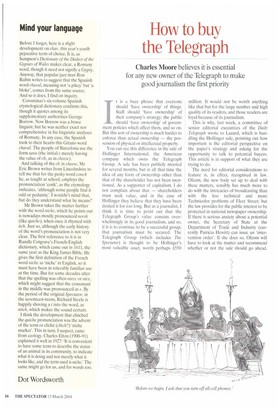Mind your language
Before I forget, here is a slight development on chav, this year's youth pejorative term of choice. It is, as Sampson's Dictionary of the Dialect of the Gypsies of Wales makes clear, a Romany word, though it need not signify a Gypsy. Anyway, that popular jazz man Ron Rubin writes to suggest that the Spanish word chaval, meaning not 'a pikey' but 'a bloke', comes from the same source. And so it does, I find on inquiry.
Corominas's six-volume Spanish etymological dictionary confirms this, though it quotes among its supplementary authorities George Borrow. Now Borrow was a brave linguist, but he was neither exact nor comprehensive in his linguistic analyses of Romany. In any case, the Spanish took to their hearts this Gitano word chaval. The people of Barcelona use the form xava (the initial x merely having the value of ch, as in cheese).
And talking of the ch in cheese, Mr Eric Brown writes from Lincolnshire to tell me that for the pesky word conch he, as taught at school, employs the pronunciation 'conk', as the etymology indicates. 'although some people find it odd or pedantic'. I wouldn't mind that, but do they understand what he means?
Mr Brown takes the matter further with the word niche, which he points out is nowadays mostly pronounced neesh (like quiche), when once it rhymed with itch. Just so, although the early history of the word's pronunciation is not very clear. The first reference to it is in Randle Cotgrave's French-English dictionary, which came out in 1611, the same year as the King James Bible. He gives the first definition of the French word niche as 'niche' in English, so it must have been in tolerably familiar use at the time. But for some decades after that the spelling was often niece or nice, which might suggest that the consonant in the middle was pronounced ass. By the period of the original Spectator, in the seventeen-teens, Richard Steele is happily shoving a t into the word, as nitch, which makes the sound certain. I think the development that clinched the quiche pronunciation was the advent of the term or cliché (ditch?) 'niche market'. This in turn, I suspect, came from ecology. Charles Elton (1900-91) explained it well in 1927: 'It is convenient to have some term to describe the status of an animal in its community, to indicate what it is doing and not merely what it looks like, and the term used is niche.' The same might go for us, and for words too.
Dot Wordsworth


































































 Previous page
Previous page